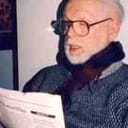Stay in the Loop
BSR publishes on a weekly schedule, with an email newsletter every Wednesday and Thursday morning. There’s no paywall, and subscribing is always free.
The soul of a journalist, the suffering of a musician
"The Soloist,' by Steve Lopez

Steve Lopez's first full-length non-fiction book, The Soloist, is a wonder. In many ways its long subtitle— ”A Lost Dream, an Unlikely Friendship, and the Redemptive Power of Music”— only hints at the book’s rich subtleties. Nathaniel Ayers, 55-year-old black Clevelander and psychotic dropout from Juilliard, resounds in so many directions that Lopez has trouble keeping track of all of them. I’m puzzled by my own failure, in reading the many Lopez columns in the L.A. Times that led up to the book, to realize that Ayers was brought up black in the very Cleveland neighborhood in which I spent two years of graduate school, active there all the while in anti-racist initiatives.
Lopez— once of the Philadelphia Inquirer— runs into Nathaniel on a Los Angeles street, namely possibly the worst Skid Row in the world, shamefully near L.A.’s new and expensive Catholic cathedral (Lopez never relents seriatim on Cardinal Roger Mahoney and his “Rog Mahal,” as Lopez dubs the elegant new church by a Starchitect)— thin cheeks by flabby jowels in downtown Los Angeles. But Nathaniel (there’s no chummy Nat talk in Lopez’s bag of verbal tricks) prefers the street and his co-opted supermarket cart. He believes he can protect his two stringed violin in the open, better than in the paradoxically lethal get-’em-off-the-street homeless “residences.” This spine of Lopez’s long foray into how we systematically abuse our mentally afflicted as well as our talented few— under both of which categories Ayers falls— is quietly horrifying.
A journalist’s manipulations
A most interesting angle is Lopez’s struggling with the journalistic ethics of his informal adoption of Nathaniel. Should he stop at the point where his writing ends and collaboration begins? Ayers is a prickly anti-collaborator, and the ruses Lopez devises to render Ayers’ involvement a fait accompli lends insouciant suspense to the narrative. And is Lopez neglecting his wife Alison and young daughter Caroline as he administers his circuitous schemes to get Ayers off the street and teaching others how much he knows about both music and suffering? Lopez even discards his jazz background in another ploy to keep his classically trained charge teaching him the violin.
The response of the L.A. Times readership to Ayer’s poses and Lopez’s prose about his predicament is extraordinary. I remember being miffed early on when Lopez ignored my offered money to help. On a pit stop later, I learned from a brief eye-to-eye with him in the foyer of the L.A. Times that no offense was intended— there were just too many offers of help.
A hug from Yo-Yo Ma
A fascinating phase of the book is Lopez’s search for the etiology of Nathaniel’s illnesses. He contacts a friendly sister and a discombobulated father who had ironically abandoned their Cleveland homestead for the greater freedom of L.A. Meanwhile the mother back in Cleveland helps as much as she can by keeping Nathaniel’s spirits up. A favorite teacher joins the affirmative chorus. Members of the Cleveland Orchestra, then at the peak of its George Szell era, pitch in. Disney Hall star players in Los Angeles adopt him. Yo Yo Ma, a contemporary of Nathaniel’s at Julliard, embraces him backstage.
Lopez finishes the book ambiguously. There’s no happy ending: Nathaniel is still unleashing anti-Negro and anti-Jewish tirades as he temporarily loses control. It’s enough that there’s no unhappy ending: Nathaniel’s in his own flat, giving lessons and scanning the meaner streets of L.A. for lost souls.
There’s an old saw that the function of journalism is to afflict the comfortable and comfort the afflicted. Trouble is, Steve and Nathaniel have concluded from their humane afternoons together that some afflictions can’t be comforted and, indeed, some easy comforts are unworthy of their aspirations. Lopez, in any case, moves to the head of his classy career.
Lopez— once of the Philadelphia Inquirer— runs into Nathaniel on a Los Angeles street, namely possibly the worst Skid Row in the world, shamefully near L.A.’s new and expensive Catholic cathedral (Lopez never relents seriatim on Cardinal Roger Mahoney and his “Rog Mahal,” as Lopez dubs the elegant new church by a Starchitect)— thin cheeks by flabby jowels in downtown Los Angeles. But Nathaniel (there’s no chummy Nat talk in Lopez’s bag of verbal tricks) prefers the street and his co-opted supermarket cart. He believes he can protect his two stringed violin in the open, better than in the paradoxically lethal get-’em-off-the-street homeless “residences.” This spine of Lopez’s long foray into how we systematically abuse our mentally afflicted as well as our talented few— under both of which categories Ayers falls— is quietly horrifying.
A journalist’s manipulations
A most interesting angle is Lopez’s struggling with the journalistic ethics of his informal adoption of Nathaniel. Should he stop at the point where his writing ends and collaboration begins? Ayers is a prickly anti-collaborator, and the ruses Lopez devises to render Ayers’ involvement a fait accompli lends insouciant suspense to the narrative. And is Lopez neglecting his wife Alison and young daughter Caroline as he administers his circuitous schemes to get Ayers off the street and teaching others how much he knows about both music and suffering? Lopez even discards his jazz background in another ploy to keep his classically trained charge teaching him the violin.
The response of the L.A. Times readership to Ayer’s poses and Lopez’s prose about his predicament is extraordinary. I remember being miffed early on when Lopez ignored my offered money to help. On a pit stop later, I learned from a brief eye-to-eye with him in the foyer of the L.A. Times that no offense was intended— there were just too many offers of help.
A hug from Yo-Yo Ma
A fascinating phase of the book is Lopez’s search for the etiology of Nathaniel’s illnesses. He contacts a friendly sister and a discombobulated father who had ironically abandoned their Cleveland homestead for the greater freedom of L.A. Meanwhile the mother back in Cleveland helps as much as she can by keeping Nathaniel’s spirits up. A favorite teacher joins the affirmative chorus. Members of the Cleveland Orchestra, then at the peak of its George Szell era, pitch in. Disney Hall star players in Los Angeles adopt him. Yo Yo Ma, a contemporary of Nathaniel’s at Julliard, embraces him backstage.
Lopez finishes the book ambiguously. There’s no happy ending: Nathaniel is still unleashing anti-Negro and anti-Jewish tirades as he temporarily loses control. It’s enough that there’s no unhappy ending: Nathaniel’s in his own flat, giving lessons and scanning the meaner streets of L.A. for lost souls.
There’s an old saw that the function of journalism is to afflict the comfortable and comfort the afflicted. Trouble is, Steve and Nathaniel have concluded from their humane afternoons together that some afflictions can’t be comforted and, indeed, some easy comforts are unworthy of their aspirations. Lopez, in any case, moves to the head of his classy career.
Sign up for our newsletter
All of the week's new articles, all in one place. Sign up for the free weekly BSR newsletters, and don't miss a conversation.

 Patrick D. Hazard
Patrick D. Hazard